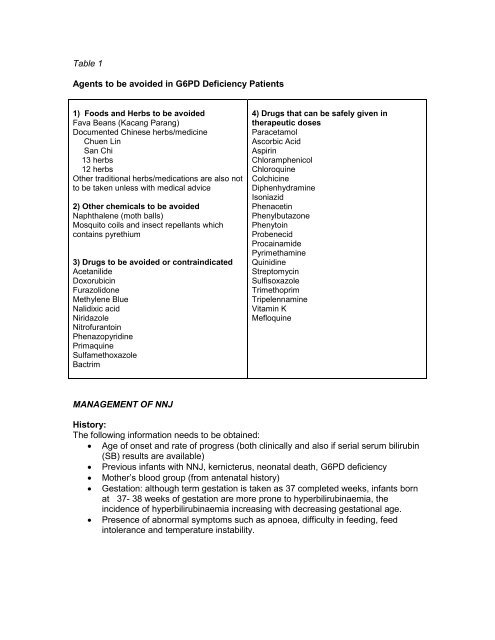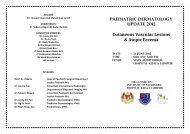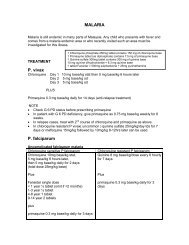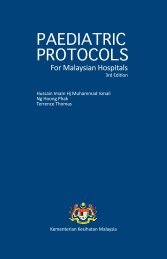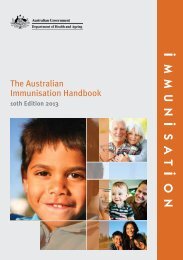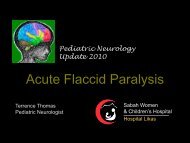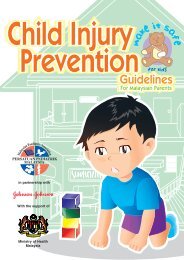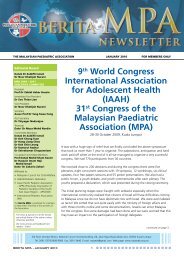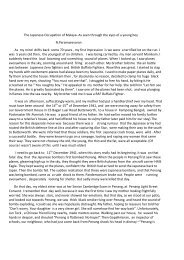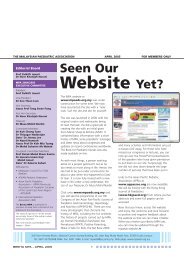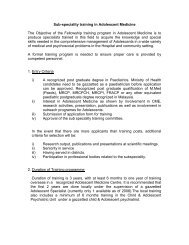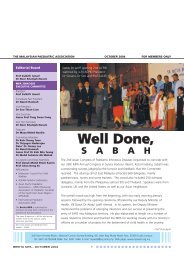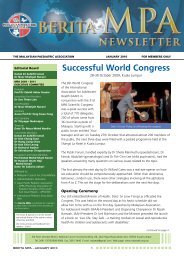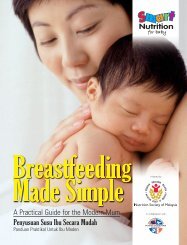Contents Chapter Topic Page Neonatology Respiratory Cardiology
Contents Chapter Topic Page Neonatology Respiratory Cardiology
Contents Chapter Topic Page Neonatology Respiratory Cardiology
You also want an ePaper? Increase the reach of your titles
YUMPU automatically turns print PDFs into web optimized ePapers that Google loves.
Table 1<br />
Agents to be avoided in G6PD Deficiency Patients<br />
1) Foods and Herbs to be avoided<br />
Fava Beans (Kacang Parang)<br />
Documented Chinese herbs/medicine<br />
Chuen Lin<br />
San Chi<br />
13 herbs<br />
12 herbs<br />
Other traditional herbs/medications are also not<br />
to be taken unless with medical advice<br />
2) Other chemicals to be avoided<br />
Naphthalene (moth balls)<br />
Mosquito coils and insect repellants which<br />
contains pyrethium<br />
3) Drugs to be avoided or contraindicated<br />
Acetanilide<br />
Doxorubicin<br />
Furazolidone<br />
Methylene Blue<br />
Nalidixic acid<br />
Niridazole<br />
Nitrofurantoin<br />
Phenazopyridine<br />
Primaquine<br />
Sulfamethoxazole<br />
Bactrim<br />
MANAGEMENT OF NNJ<br />
4) Drugs that can be safely given in<br />
therapeutic doses<br />
Paracetamol<br />
Ascorbic Acid<br />
Aspirin<br />
Chloramphenicol<br />
Chloroquine<br />
Colchicine<br />
Diphenhydramine<br />
Isoniazid<br />
Phenacetin<br />
Phenylbutazone<br />
Phenytoin<br />
Probenecid<br />
Procainamide<br />
Pyrimethamine<br />
Quinidine<br />
Streptomycin<br />
Sulfisoxazole<br />
Trimethoprim<br />
Tripelennamine<br />
Vitamin K<br />
Mefloquine<br />
History:<br />
The following information needs to be obtained:<br />
• Age of onset and rate of progress (both clinically and also if serial serum bilirubin<br />
(SB) results are available)<br />
• Previous infants with NNJ, kernicterus, neonatal death, G6PD deficiency<br />
• Mother’s blood group (from antenatal history)<br />
• Gestation: although term gestation is taken as 37 completed weeks, infants born<br />
at 37- 38 weeks of gestation are more prone to hyperbilirubinaemia, the<br />
incidence of hyperbilirubinaemia increasing with decreasing gestational age.<br />
• Presence of abnormal symptoms such as apnoea, difficulty in feeding, feed<br />
intolerance and temperature instability.


